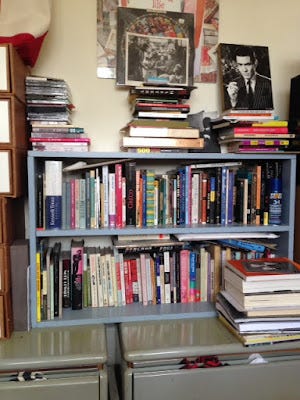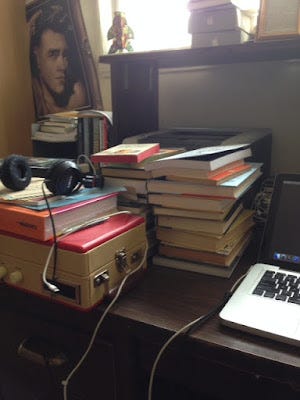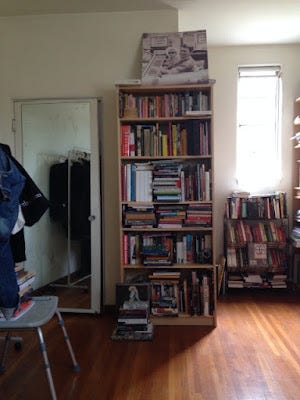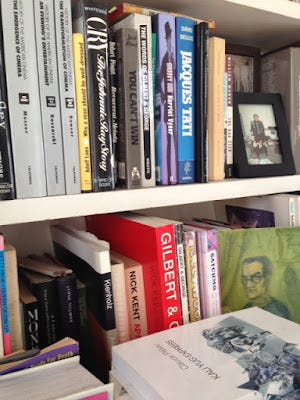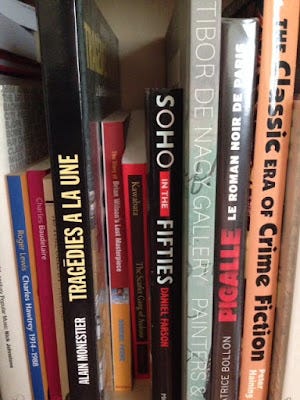Books. I have a lot of books. Every book I have is a great book. But due to space and finances, I need to surrender some of my books to the outside world. I set this Sunday to make the final choices. Which books to keep and to give up. The truth is I don't want to give up any of my books. If I could, I would keep my books intact as a collection. So when I die, it will be either sold or put up in a museum as the "Tosh Collection." I'm one of the few that believe that by looking at someone's bookshelf, you are genuinely seeking a self-portrait of that individual. Clothing is another option, but in reality, the book you read makes you what you are.
The first book I became aware of is more likely one of the Oz books by L. Frank Baum. The need to go somewhere else, or anywhere else from home, is a pleasant way to see the world as imagined by another person. I set my workspace, or writing- room, as a window or a port to travel. I fear now to get rid of a book, which may be a passage to the other world. Once gone, I'll be stuck here, sitting in front of this Macbook Pages application.
I have quite a few P.G. Wodehouse titles, and through those books, I'm exposed to a much better world than mine. I have often tried to visualize having Jeeves at my service. My needs are taken care of in an exemplary manner that I don't even have to ring the bell on my work table. He knows when to arrive, and I can sit here and 'desire' something.
Tearing this collection apart is like death. A young man wouldn't have to do this, but as one gets older, they have to inventory their goods - and decide what must go and what must stay. I then thought of photographing every book I own - just the cover. That way, if I'm on a trip outside my house, I can, in a sense, carry my collection with me. Logically I can't re-read the books, so do I keep them?
I would say a third of my collection are used or second-hand books. I think who owned each used book and why they had to let it go for each used book. The most common, especially vintage paperbacks, were owned by a student. Most, if not all, are underlined in specific sections - more likely used for a classroom. Then there are books that an older individual clearly owns. One wonders if death came upon them, and the family sold the books to the second-hand shop. And since I own books, the original publication goes back to the twenties - the once-living must have touched all those. I feel that way about vinyl albums and 45rpm singles as well. There is history in the grooves and paper and in surrounding the object.
When I go to a used bookstore with new stock, I can tell it came from a specific collection, especially when I notice new titles in the poetry section. Readers tend to stay with one particular school of poetry. I was intrigued some years back when I came upon a lot of French Surrealist poetry on the shelves. I became curious to know who the original owner of these titles was. The bookshop owner didn't want to give out a name but told me he was a TV producer who created "Father Knows Best." I didn't need to know more. I was satisfied that a reader of Surrealist poetry was also the mastermind of an all-American inane family living in the suburb of everyday 1950s America.
As I'm about to give up my book collection, I have to decide to either open up my library or toss it out to the world. I have concluded that when I die, I will give my house to the town of Silver Lake, where my belongings and books will stay intact. There will be a $5 admission to keep the property and home in good shape. The "Tosh Berman Library" will be used for scholars and the 'everyday' curious to see what my life was like, which reflects the books that I own.



